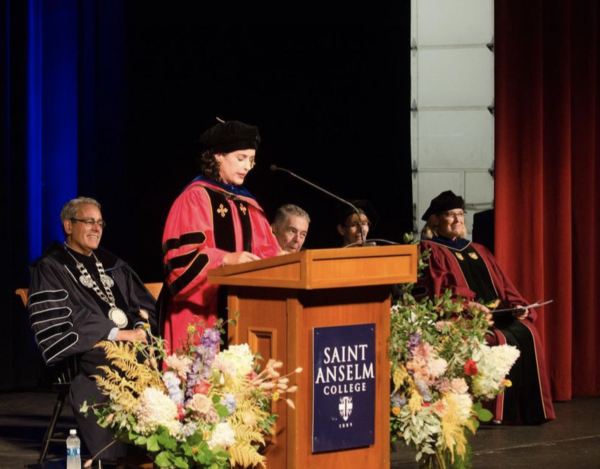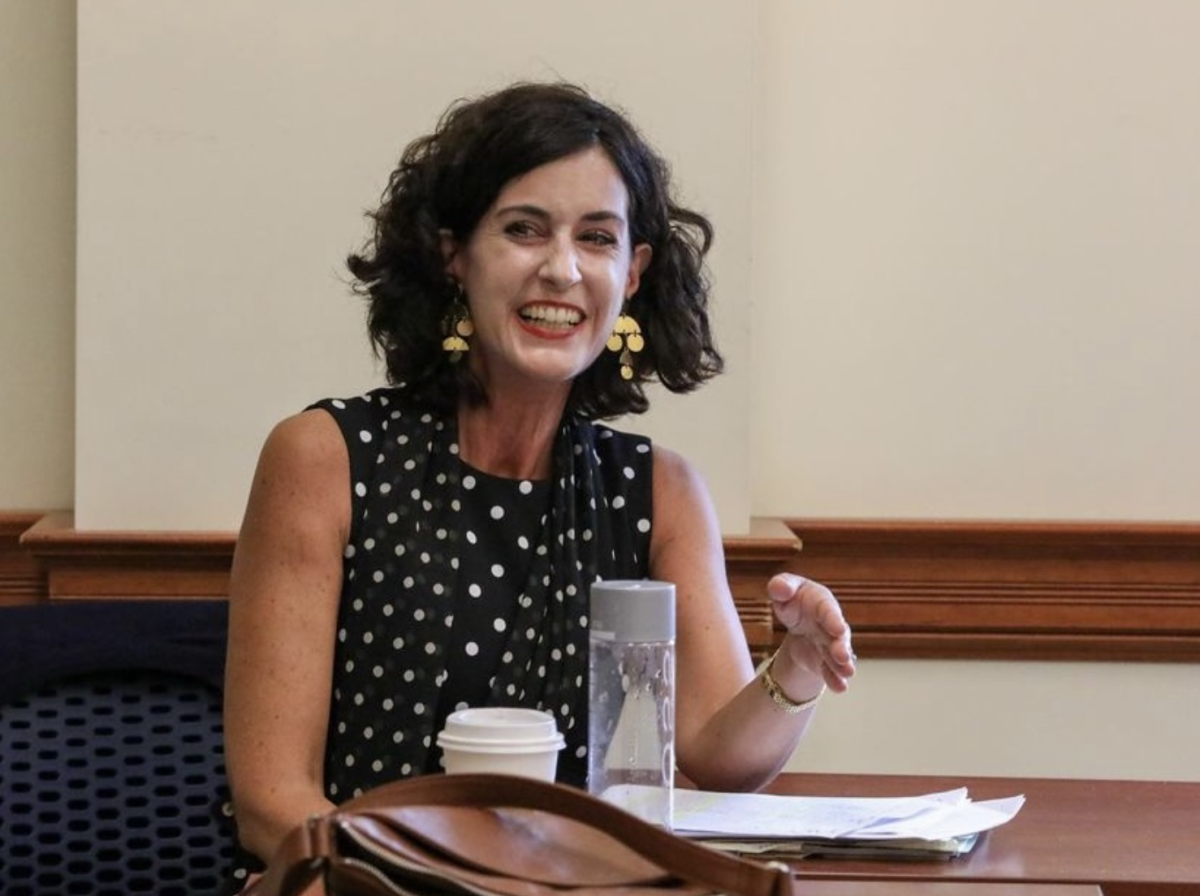Dr. Emily Orlando, a Saint Anselm alumna from the class of 1991, was the keynote speaker at a Sept. 8th academic convocation held to commemorate the 50th anniversary of women’s admission to all College programs. Dr. Orlando is now a professor of English and the E. Gerald Corrigan Chair in the Humanities and Social Sciences at Fairfield University.
Orlando has been recognized internationally for her scholarship on American writer Edith Wharton, most recently in the position of President of the Edith Wharton Society, of which she remains a committed member. She quoted Wharton’s letters in her convocation address, saying gratefully, “Everywhere on my path I have been met with kindness and furtherance.” That kindness and furtherance began in her undergraduate years at Saint Anselm.
Dr. Orlando grew up in Reading and Concord, MA. She attended Saint Anselm College just thirteen years after women were first admitted to all academic programs. She held back from declaring a major at first, and while she was interested in English she said she “was afraid she couldn’t keep up.” She credits her mentors, among them Prof. Gary Bouchard of the English department and Dr. Denise Askin, former English professor and Trustee Emerita, with her decision to confidently pursue an English degree.
Orlando shared a memory of sitting in Prof. Bouchard’s Renaissance literature class as an undergraduate and realizing that she was “in the presence of human genius.” She said that to this day she asks herself, “What would Denise Askin do?” in any given situation, describing Askin as a “pathbreaker who could find common ground with anyone.”
Dr. Orlando opened her speech with two epigraphs, a quote from St. Anselm of Canterbury and a quote from the Indigo Girls song “Closer to Fine.” She quoted Anselm, saying, “For I do not seek to understand in order that I may believe, but I believe in order to understand,” and followed up with the Indigo Girls’ lyric “the less I seek my source for some definitive / closer I am to fine.” She credited her liberal arts education with helping her bridge the gap between the act of seeking understanding with faith while also remaining open minded, not closing herself off to new information.
Dr. Orlando spoke highly of the Saint Anselm undergraduate curriculum in the late 1980s and early 1990s, saying that it made her “a better thinker” and “lit a fire in me that has never dwindled.” She credits her studies here with giving her a “lifelong love of learning,” and thoughtfully observed that the humanities seminars was what made her comfortable with her own voice. To put the academic rigor of the Saint Anselm curriculum into perspective, she added that “A’s came for me more easily at Harvard University,” where she took post-grad classes in English and French, than at Saint Anselm.
Dr. Orlando advised students: “Don’t be afraid to be the person who sits at the front of the room and radiates love for the subject under study.” She acknowledged that it might be tempting to be cynical about the humanities or about the value of a liberal arts degree, but said, “I never thought I’d be citing Taylor, but haters gonna hate!”
Dr. Orlando expressed a deep sense of pride in being educated at a school that thinks the humanities should complement rather than compete with its students’ careers, even those that don’t directly involve the liberal arts. She closed with a final Edith Wharton reference, quoting “The visible world is a daily miracle for those who have eyes and ears.” She encouraged the audience to “keep our eyes and ears open, strive for the sweet spot of being ‘closer to fine.’ May we hold on to faith as we seek to understand.”

years of women’s admission to all College programs. (Courtesy/Saint Anselm College)


